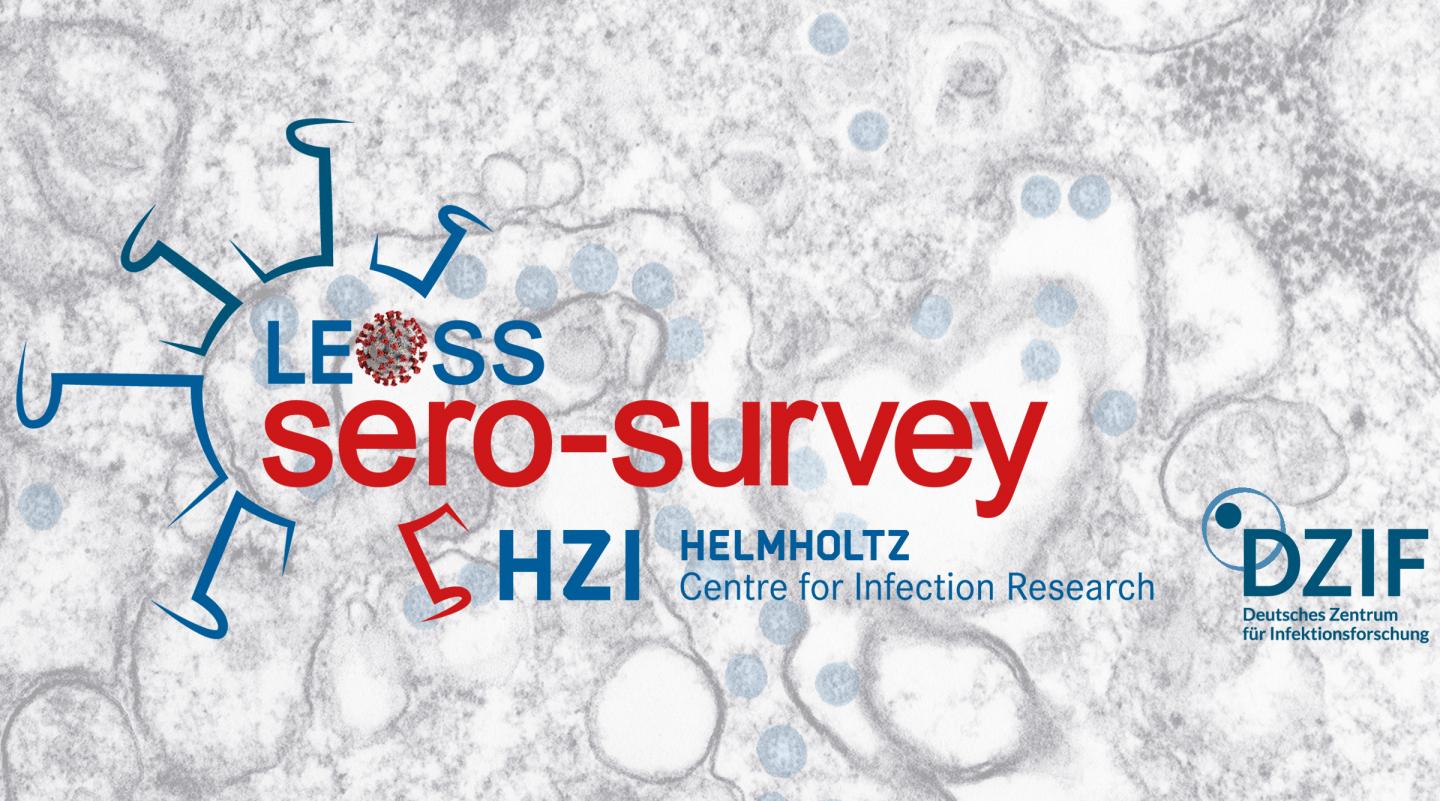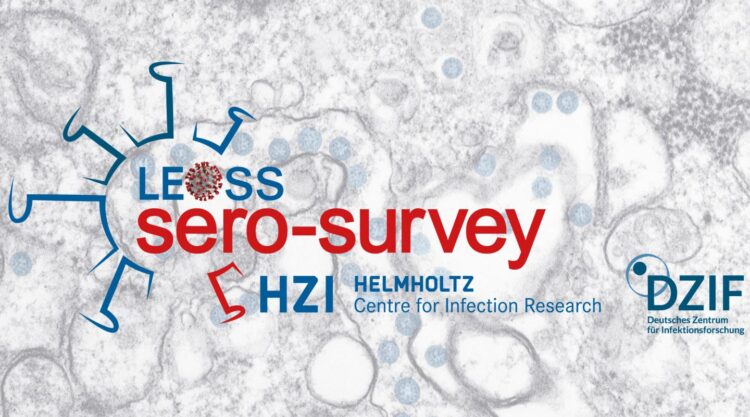
Credit: LEOSS.sero-survey
Who has overcome an infection with the virus without noticing, and how many people have already produced protective antibodies against the new coronavirus? Various antibody studies are now under way that will provide information on immunity or seroprevalence in the population. However, in order to compare these studies in a timely and reliable manner and provide a comprehensive evaluation, the German Center for Infection Research (DZIF) is building a platform that gathers the methodology and results of the tests and makes the data available to interested researchers. The project “LEOSS.sero-survey” will be led by scientists at the Helmholtz Centre for Infection Research (HZI) and implemented in collaboration with Helmholtz Federated IT Services (HIFIS).
The strategies for dealing with the COVID-19 pandemic depend largely on estimation of the actual number of infected people. In addition to the cases tested and confirmed, there is an unknown number of people who have undergone infection with or without mild symptoms and have not been tested. They will no longer be at risk for at least some time, because their immune system has responded by forming antibodies. This aspect is very important for adapting the measures taken.
“We can only find out the actual level of immunity in the population if we carry out seroprevalence studies. This involves testing the blood of as many people as possible for specific antibodies against SARS-CoV-2 that have already been formed,” according to Prof. Gerard Krause, head of the Department of Epidemiology at the HZI, who leads development of the platform in collaboration with the Robert Koch Institute (RKI). The RKI had already prepared a list of the antibody studies known to them and made it available on the Internet, an important step for the direction of this project.
The “LEOSS.sero-survey” goes beyond presentation of the various studies, because it now offers research groups the opportunity to collect and jointly evaluate the anonymised data of the various studies in order to increase their statistical significance. Discussions about methods and instruments should also lead to greater efficiency and comparability. Data from all studies that meet certain minimum methodological criteria can be fed into the joint platform. Only data that are not critical with regard to data protection will be collected.
The platform follows the example of the existing LEOSS patient register, which has been collecting and evaluating clinical data from COVID-19 patients throughout Europe since March. With the LEOSS.sero-survey, a second important step is being taken that focusses on the immunity of affected people. “The platform will facilitate the comparability and joint evaluations of the different studies and, taken together, achieve greater significance,” explained Krause. Virtual resources of the Helmholtz Association will also be used for this purpose. In particular, an established data management system is being made available by the Helmholtz Centre in Berlin to conduct a pilot project with the HIFIS.
“This platform will help us to ensure that study protocols, procedures and other methodological tools are made available to all involved staff in order to avoid unnecessary duplication,” said Dr. Stephan Gloeckner, project coordinator for the LEOSS.sero-survey. To this end, there are also consultations with the World Health Organization (WHO), the European Centre for Disease Prevention and Control (ECDC), the European Bioinformatics Institute (EMBL-EBI) and other international bodies.
Researchers interested in participating in the LEOSS.sero-survey should provide information about their project. This has the advantage that the project is advertised and communication can be established among researchers. Case-based information can be uploaded to the LEOSS.sero-survey to enable a meta-analysis, i.e. a weighted summary of the projects already carried out.
###
Interested researchers and study centres are invited to participate in the LEOSS.sero-survey. Please see https:/
Media Contact
Dr. Stephan Gloeckner
[email protected]
Original Source
https:/





